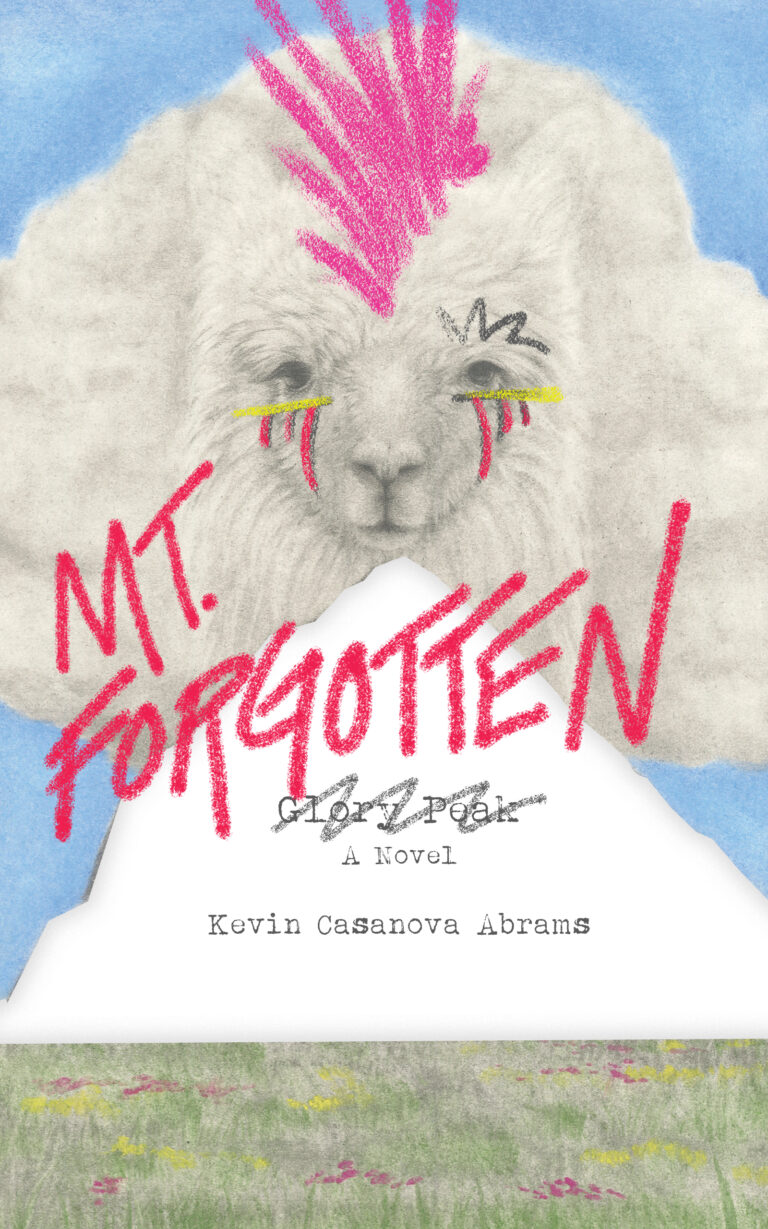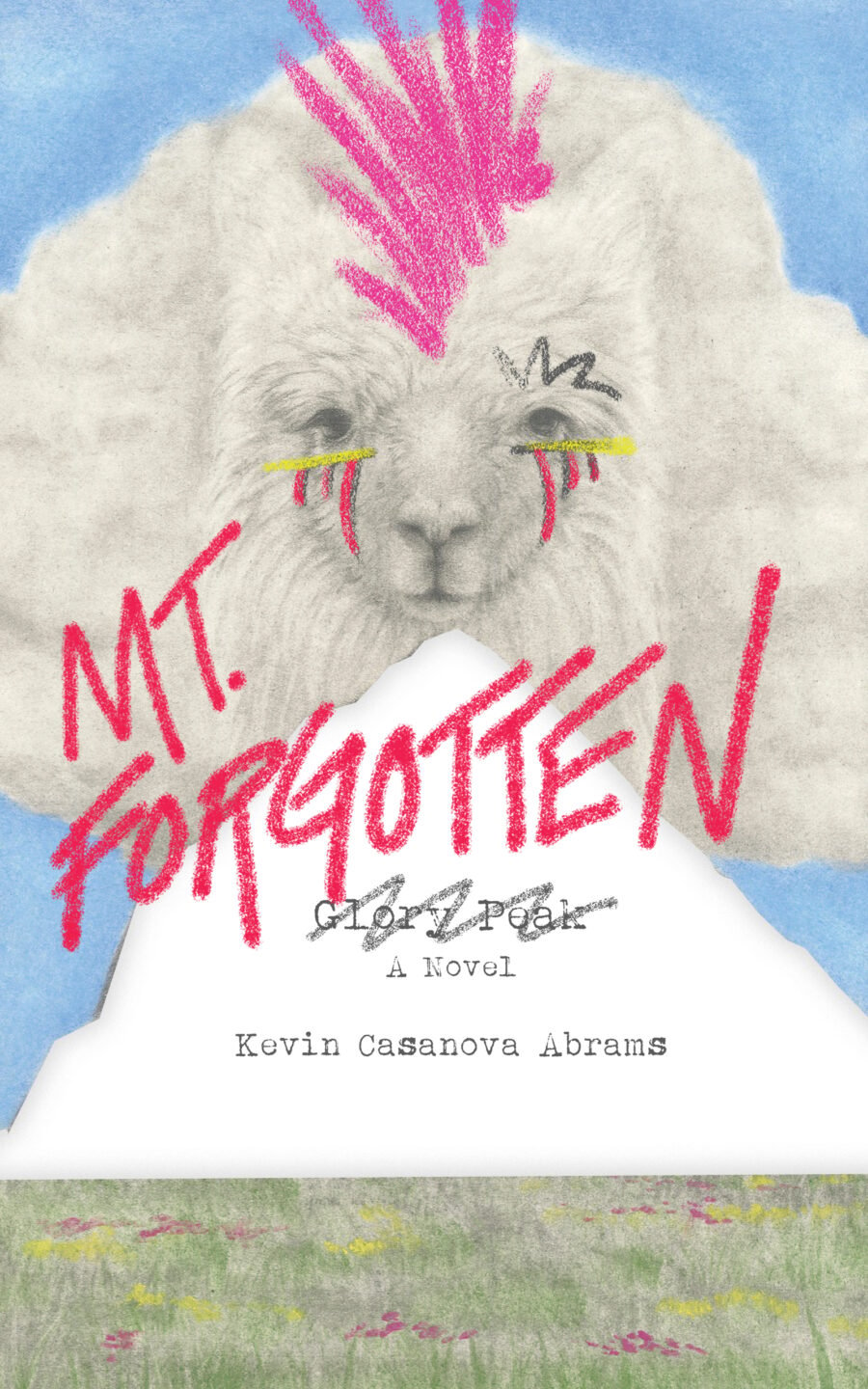Kevin Casanova Abrams’s lofty novel MT. FORGOTTEN centers on a real estate war that threatens to displace natives in a ski resort mountain town in a sweeping multi-generational saga. The cross-country skier Clover Dolores Mackelmore finds herself caught between the indigenous Le’Echuwanna tribe and the business interests of her family, which developed the Glory Peak ski resort on the Spotted Horn Range in the Pacific Northwest. She has to save the town of Fortooth Bend in the Farangotta Valley from the encroachment of further development and a land war that’s tearing the community apart.
Epic in scope, the book chronicles the course of the ski town during the latter half of the 20th century—looking at how Glory Peak brought prosperity that faded over time while jumping chronologically between the present day and various time periods in the past. After World War II, Clover’s grandfather “Mudhook” William Jefferson Mackelmore builds a ski resort that has an initial lure of free beer with every lift ticket. It ends up drawing tourists from far and wide, getting hailed by SKI Magazine as “the greatest winter resort in the Americas.” Clover’s parents Bobby and Annabelle get swept away in an avalanche by Miner’s Gasp after a voluminous snowfall descends.
The book excels at both introducing characters through a quick rundown of their background and developing them, showing how they react to both triumphs and disappointments. It juggles a large cast of characters, keeping them all individually fleshed out and getting a lot of mileage out of telling details—like how Clover could appreciate both pesto and peanut butter in her teenage years, or how Bill hunched and fumbled for an excuse when showing up late to see his son after a divorce (only to be met with youthful indifference).
The perspective hops from character to character, inhabiting different points of view in a way that broadens and brings the setting to life. The book excels at world-building, itemizing every single business in the small town (including the two steakhouses): “one specializing in certified Angus beef, the other in elk.” A detailed geography that includes country roads, landmarks like Hangman’s Cliff, and other authentic-sounding points of reference adds a layer of verisimilitude.
Whether with snowy slopes or roaming alpacas, the sense of place is rendered so vividly that the setting comes across as its own character. MT. FORGOTTEN shows real appreciation for the land at the heart of the story, as when waxing rhapsodic about the “columbines, their petals so bright it was as if they dusted every ramp in the valley with a glaze of fire-engine red.” Firecracker prose crackles on the page. The writing can turn a memorable phrase, as when a character “recoiled as if she pointed a shotgun at his face.” The prose is by turns witty, bawdy, and poetic, making effective use of alliteration and other literary techniques. It makes the most indelible impressions when going over the top, as when a character “once promised herself, no matter what happened, even if the world cracked in two and broke down into a rain of rock and sand, she would never, ever, in a billion light-years, reach out to William Jefferson Macklemore.”
The book builds to an explosive climax, ties up character arcs perfectly, and circles back to an unexpected but satisfying resolution that provides emotional closure. Towering in ambition, MT. FORGOTTEN presents a barbed critique of manifest destiny.
Kevin Casanova Abrams’s MT. FORGOTTEN reaches great heights as a multi-generational epic about a land war in a mountain town that pits rival developers against natives. A strong sense of place, ribald wit, and showy writing animate the story of this ski resort showdown.
~Joseph Pete for IndieReader


